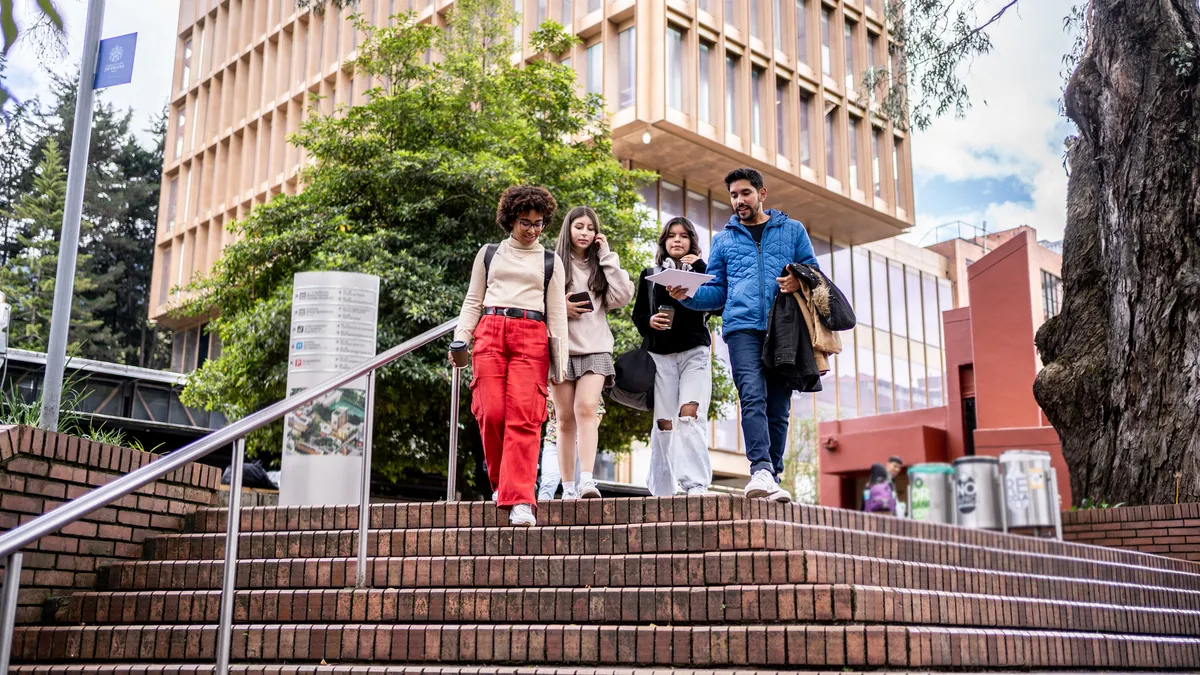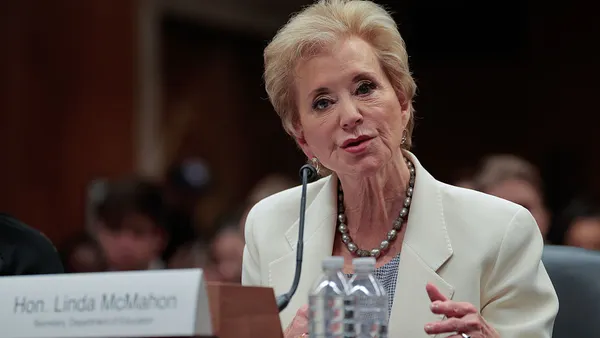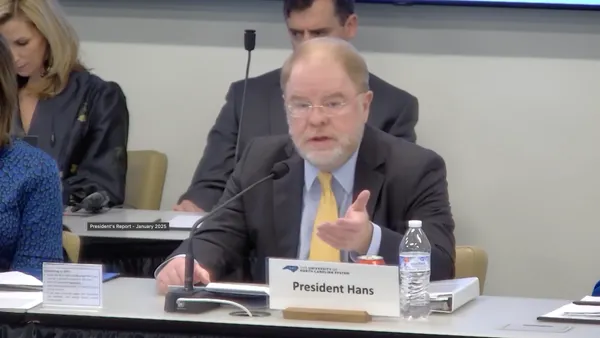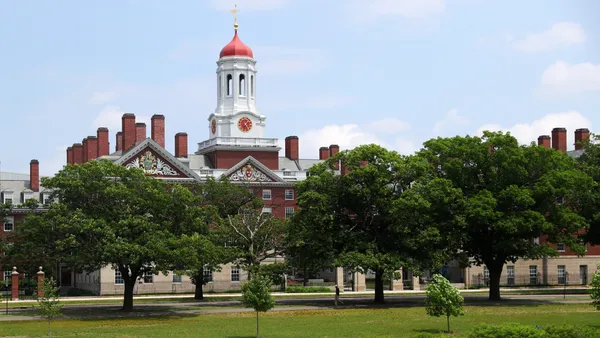Dive Brief:
- Leading U.S. universities, unlike their counterparts in some other countries, keep their enrollments artificially low, but the American economy and workforce would benefit if they expanded, wrote one higher education expert.
- Writing in The Washington Post, Jeffrey Selingo, the former editor of the Chronicle of Higher Education and author of the book "There Is Life After College," notes that Canada's three leading universities enroll a total of 110,000 students and are that country's biggest and most prestigious.
- Selingo also wrote that in U.S. higher education too often “the prevailing wisdom is that increased size comes at the expense of academic quality and reputation,” an approach they should end because the U.S. needs more graduates and universities and colleges of all types that can grow to meet the demand. “That task shouldn’t just fall to those institutions in the middle and lowest tiers of higher education,” he said.
Dive Insight:
Selingo wrote that at leading American institutions often only 10% of students who apply are admitted and even some top-tier public state universities are becoming more selective rather than growing. He said the trend began in the 1950s and 1960s when states built new universities to meet demands while elite colleges maintained their smaller sizes. The University of California, Berkeley, for example, once accepted any graduating high school California resident who had completed required courses with a 3.0 GPA, but now it takes fewer than 16% of in-state students who apply, he wrote.
Apart from Canada, two of Australia’s top institutions, the University of Melbourne and the University of Sydney, each enroll about 42,000 students compared with about 12,100 at Yale, 20,000 at Harvard and 9,000 at Princeton, according to The World University Rankings. Peking University, ranked as one of the best colleges in China, has 35,000 students.
Selingo quoted Ben Nelson, founder of the Minivera Project, a university start-up hoping to become an elite institution admitting any student who is qualified. “It’s like if Apple and Samsung only produced enough phones to meet 5% of global demand,” Nelson said.
Minerva claims to offer a unique blend of high-quality learning opportunities in very untraditional ways. Based in San Francisco, it has small seminars and a rigorous curriculum and hopes to expands its first-year campuses to six other cities internationally. After the first year, students participate in Active Learning Forums with live, video-based seminars with 20 students or less.










